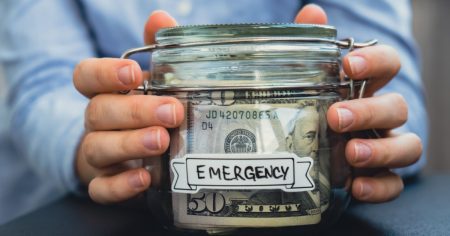As September marks National Preparedness Month, it’s a timely reminder to reassess not only our emergency kits and plans but also the state of our finances. In the face of unpredictable events, financial stability can be as crucial as having the right supplies on hand. Unexpected events like job loss, medical bills, or natural disasters can derail even the best-laid plans. Therefore, being prepared to tackle these situations is crucial.
So, how prepared are your finances for an emergency, and what can you do to strengthen them this month?
Key Takeaways
- Save before you spend – Automate a small weekly transfer into an emergency fund.
- Slash high-interest debt -Credit card balances drain your flexibility in a crisis.
- Protect your income -Keep insurance updated and explore extra income streams.
- Plan ahead – Budget for fall expenses now so they don’t eat into your savings.
- Get guidance – Nonprofit credit counselors like ACCC can help you create a personalized plan.
Why Financial Readiness Matters?
Financial readiness is often overlooked, yet it plays a pivotal role in how well we can weather unforeseen circumstances, such as job loss, medical emergencies, or natural disasters. Having a solid financial plan to tackle the unexpected can mitigate stress and provide a safety net, allowing you to focus on what truly matters during difficult times.
Many, it turns out, are not. A new Empower study reveals more than 1 in 5 (21%) Americans have no emergency savings — money set aside for unexpected financial events such as job loss, home and car repairs, and medical bills. Nearly 2 in 5 (37%) couldn’t afford an emergency expense over $400. – The Empower “Emergency Savings” study. 2024.
10 Practical Steps to be Financially Ready
1. Review and Adjust Your Budget
Your budget serves as the backbone of your financial health. Begin by assessing your current budget to ensure it aligns with your financial goals, especially in terms of emergency preparedness. Make sure it allocates a specific portion for emergency savings. This may involve cutting back on non-essential expenses or finding more cost-effective alternatives to free up funds for your emergency fund.
2. Build or Bolster Your Emergency Fund
An emergency fund is your first line of defense against financial disruptions. Aim to save enough to cover three to six months’ worth of living expenses. If starting from scratch, focus on small, regular contributions to an emergency savings account. Consistency is key, and over time, these contributions can grow into a substantial safety net.
3. Automate Your Savings
One of the most effective ways to ensure regular savings is by setting up automatic transfers from your checking account to your emergency fund. This approach not only fosters consistent contributions but also eliminates the temptation to skip a month. Automation makes saving a hassle-free part of your financial routine.
4. Review Your Insurance Coverage
Having adequate insurance coverage can prevent financial devastation in the event of accidents or disasters. Take the time to review your health, home, and auto insurance policies to ensure they are up-to-date and meet your current needs. Adjust coverage if necessary to avoid unexpected out-of-pocket expenses.
5. Pay Down High-Interest Debt
High-interest debts, such as credit card balances, can be a significant burden during an emergency. Focus on reducing these debts to free up more of your income for savings and reduce financial stress. Consider employing strategies like the snowball or avalanche methods to systematically tackle your debts.
6. Evaluate Your Income Streams
Diversifying your income can provide an additional buffer in times of financial uncertainty. Explore side jobs, freelance opportunities, or passive income streams that can increase your financial resilience. Not only does this offer more security, but it also presents opportunities for personal and professional growth.
7. Keep Important Documents Handy
In an emergency, having quick access to essential documents can be invaluable. Organize critical financial documents such as insurance policies, bank statements, and identification in a safe, easily accessible location. Consider digital backups for added security and convenience.
8. Plan for Seasonal Expenses
As fall approaches, anticipate seasonal expenses such as higher heating bills or holiday-related costs. Budgeting for these in advance can prevent unnecessary reliance on your emergency savings. Planning ahead ensures that these predictable expenses don’t catch you off guard.
9. Educate Yourself
Financial literacy is a cornerstone of financial readiness. Take advantage of resources such as online courses, workshops, or books on personal finance. A solid understanding of money management empowers you to make informed decisions that enhance your financial resilience.
10. Seek Professional Guidance
If managing your finances feels overwhelming, don’t hesitate to seek help. A financial advisor can provide personalized advice tailored to your situation. Additionally, nonprofit organizations like American Consumer Credit Counseling offer resources and support to help you navigate financial challenges like high unsecured debt balances
Financial Readiness Beyond September
By adopting these practical steps, you can enhance your financial preparedness and ensure peace of mind as you head into the fall season. Financial readiness is not just about having a plan in place; it’s about taking proactive steps today to secure your tomorrow. Embrace this National Preparedness Month as an opportunity to fortify your finances and build a more resilient future for yourself and your loved ones.
While September serves as a reminder to check our preparedness, financial security should be a year-round focus. Regularly reviewing and adjusting your financial strategy will keep you better equipped to handle whatever life throws your way. Remember, the foundation of financial readiness is built on consistent, informed actions that align with your long-term goals.
There are plenty of resources and tools to help you be financially ready now and in the future. Make sure to use them and assess your situation periodically, and make adjustments as you see fit.
Be Ready with ACCC
Financial readiness is a crucial component of overall preparedness for emergencies. By focusing on building a robust financial plan, you can alleviate stress and ensure that you and your family are well-equipped to face any challenge that may arise. So, take action this September and beyond to enhance your financial security, ensuring a stable and secure future.
At American Consumer Credit Counseling, we’ve helped thousands of people:
- Reduce high-interest credit card debt
- Create realistic budgets
- Rebuild financial confidence
Whether you’re starting an emergency fund or overwhelmed by debt, our nonprofit counselors are here to guide you without judgment and always in your best interest.
FAQs
Q: What is National Preparedness Month, and why is it important?
A: National Preparedness Month, observed in September, is an annual campaign to encourage individuals and families to prepare for emergencies. It highlights the importance of both physical and financial readiness to effectively handle unforeseen events like natural disasters, job loss, or medical emergencies.
- Why is financial readiness crucial during emergencies?
- Financial readiness provides a safety net during challenging times, reducing stress and enabling individuals to focus on immediate needs.
- How can I start building an emergency fund?
- Begin by setting a realistic savings goal, aiming for three to six months’ worth of living expenses. Start with small, consistent contributions to a dedicated savings account. Consider automating these savings to ensure regularity and to avoid the temptation of skipping contributions.
- How can I effectively manage and reduce high-interest debt?
- Focus on paying down high-interest debts like credit card balances to free up more of your income for savings.
- Where should I store important financial documents?
- Organize essential documents such as insurance policies, bank statements, and identification in a safe, easily accessible location. Consider digital backups for added security and convenience, ensuring quick access during emergencies.
- How can ACCC help me?
- Nonprofit organizations like American Consumer Credit Counseling provide additional resources and support for managing your finances effectively.
If you’re struggling to pay off debt, ACCC can help. Schedule a free credit counseling session with us today.
Read the full article here









